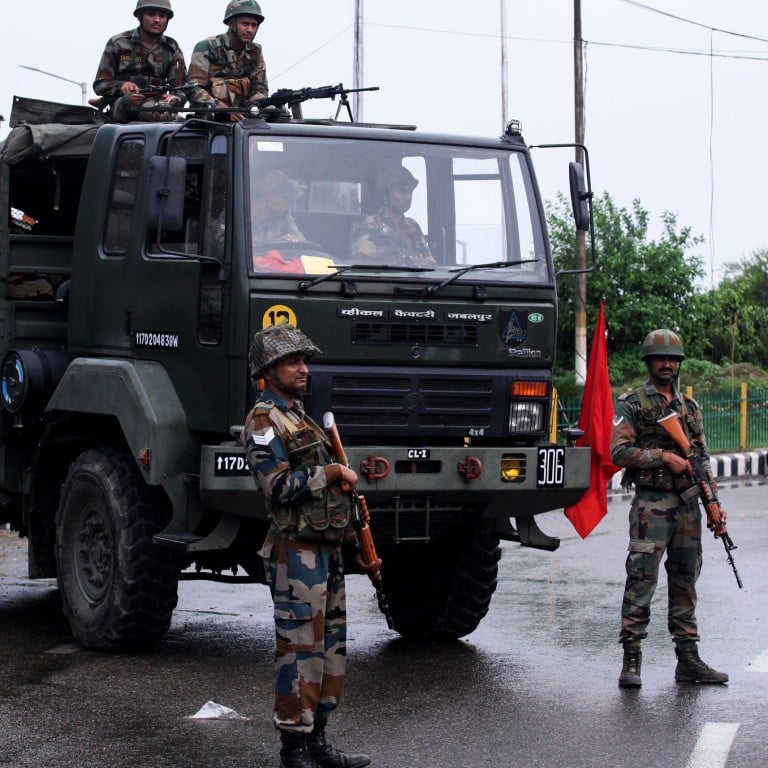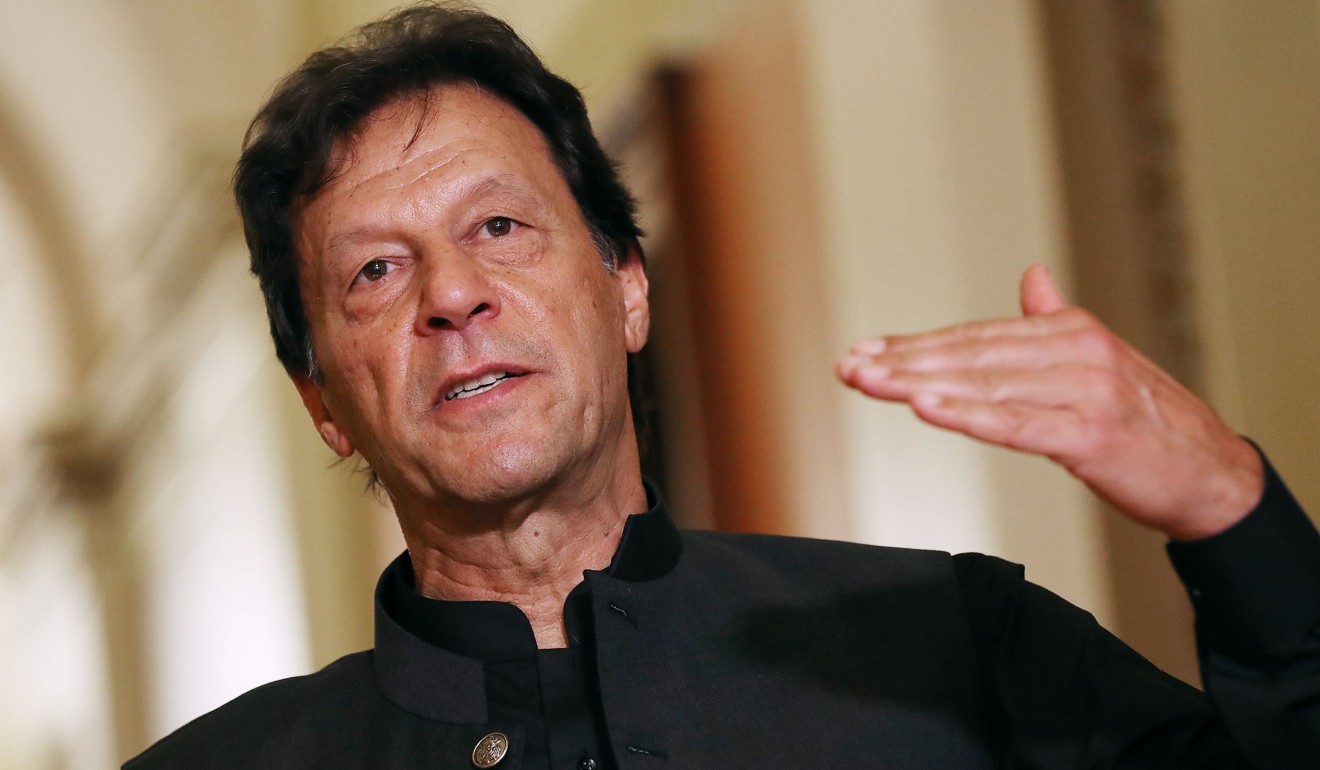
India scraps Kashmir’s special status raising fears of ‘catastrophic’ unrest
- The move had been a long-held promise of Prime Minister Narendra Modi’s ruling Hindu-nationalist Bharatiya Janata Party
- Many fear New Delhi wants to change the restive region’s demographics by allowing non-Kashmiris – mostly Hindus – to buy land locally
Kashmir conflict explained: what took Pakistan and India to brink of war?
It also moved a bill proposing Jammu and Kashmir, as the Indian-administered part is known, be divided into two regions directly ruled by New Delhi. Unlike the presidential decree, which stands unless overturned, this bill needs to be ratified by parliament.
New Delhi has said the sweeping clampdown was needed because of the “prevailing law and order situation”.
All phones, internet services and cable networks went down at midnight following days of soaring tensions. Only residents with a “curfew pass” were allowed on the streets.
India ordered thousands of tourists out of Kashmir in advance, saying there was a threat of militant attacks by Pakistan-backed groups. Islamabad has denied the claim and in turn accused Modi of seeking to overturn the region’s Muslim majority by changing its status so more outsiders have the right to buy property and get jobs.
“As the party to this international dispute, Pakistan will exercise all possible options to counter the illegal steps,” the country’s foreign ministry said in a statement.
Mehbooba Mufti, a former chief minister of Jammu and Kashmir who is currently under house arrest, said the Modi government’s decision to scrap the region’s special status had turned it into “an occupational force”, adding that it marked “the darkest day in Indian democracy”.
The opposition Congress party, meanwhile, labelled it an “unprecedented constitutional monstrosity” that would have “catastrophic” consequences, with former finance minister Palaniappan Chidambaram saying “the government has embarked upon a misadventure and dismembered the state of Jammu and Kashmir through mischievous misinterpretation of the legislation”.
Kashmir has been divided between Indian and Pakistan since their independence in 1947.
For three decades the Indian-administered part has been in the grip of an insurgency that has left tens of thousands dead.
Armed Kashmiri rebels and many residents have fought for the region’s independence or to join neighbour Pakistan.
Thousands of visitors flee Kashmir, while India-Pakistan tensions flare
There were already growing fears among Kashmiris that the special status would be ditched after Modi’s BJP obtained a large parliamentary majority in recent elections.
His party had vowed to fulfil a long-held promise to scrap the laws, and many fear New Delhi wants to change the region’s demographics by allowing non-Kashmiris, mostly Hindus, to buy land locally.
Legal experts have also questioned the legality of the move, with Kumar Mihir, an advocate on record to India’s Supreme Court, saying “the courts will have to decide whether the original legislation itself was or is part of the basic structure of the constitution. This will be judicially challenged.”
The move is set to exacerbate the already bloody rebellion in Kashmir and deepen the long-running animosity with nuclear rival Pakistan which has fought two out of its three wars with India over the territory.

Pakistan Prime Minister Imran Khan has accused India of using “cluster munitions” against civilians in Kashmir – a claim the Indian Army was quick to deny – and warned in a tweet that New Delhi’s aggressive actions had “the potential to blow up into a regional crisis”.
India also placed two of Kashmir’s former chief ministers, Omar Abdullah and Mufti, under house arrest at midnight without explanation – a move that Akhil Bery, South Asia analyst at risk consultancy Eurasia Group, described as “unprecedented”.
Donald Trump says Narendra Modi asked him to mediate on Kashmir
“It has the potential to embolden Pakistan-based terrorists to begin ramping up attacks again,” Bery said. “This also fits into Imran Khan’s narrative that India is the one responsible for escalating the tensions – he managed to convince President Trump of that and this is only going to support his message further.”
Daniel Markey, senior research professor in international relations at the John Hopkins School of Advanced International Studies and an expert on Asian affairs, said: “I think it’s pretty clear that all parties, including India’s BJP leaders, anticipate the action is likely to provoke violence inside Kashmir, and quite possibly in other parts of India as well.
“Given the recent cross-border crisis between India and Pakistan, I can easily see another escalation brewing. Precisely how it will unfold is unknowable, which is what makes outside observers so nervous.”
Additional reporting by Agence France-Presse, Reuters and Bloomberg


